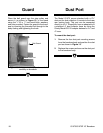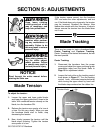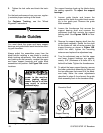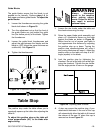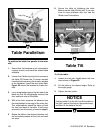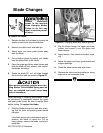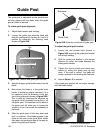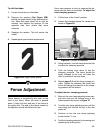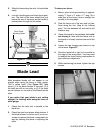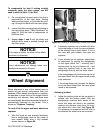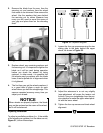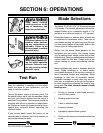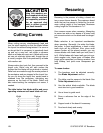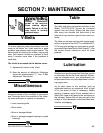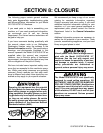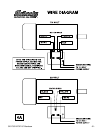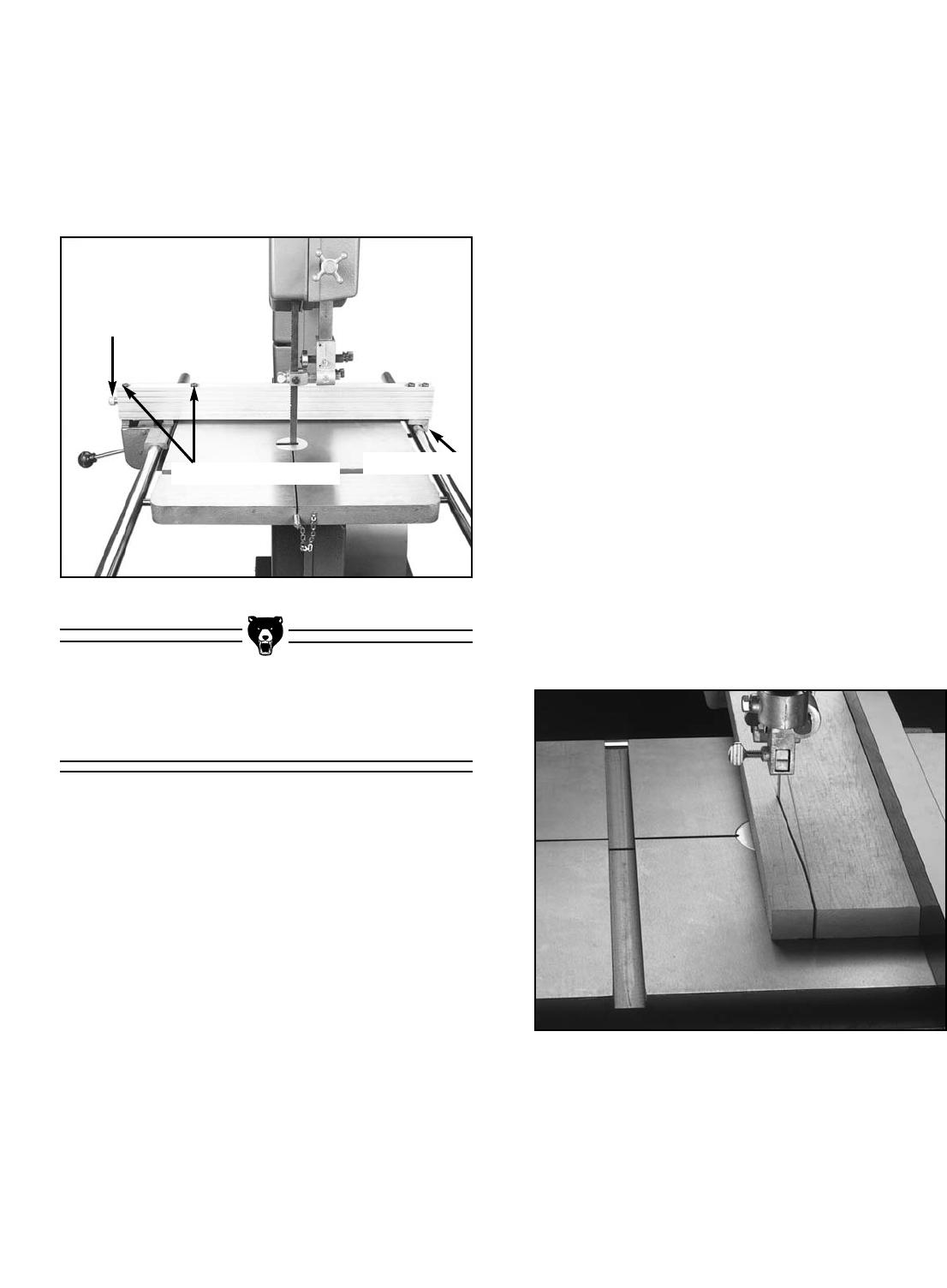
-24- G1073/G1073Z 16" Bandsaw
Figure 28. Blade leading away from line of cut.
Blade Lead
Most bandsaw blades will not appear to cut
straight when using the fence or miter gauge.
This is called “lead.” (See Figure 28.) Lead
occurs (1) if the blade tension is incorrect, (2) if
the teeth are dull on one side, or (3) if the teeth
are set heavier on one side of the blade than the
other.
If you notice that your blade is not cutting
straight (i.e. leading) while using the fence or
miter gauge:
1. Check that the miter slot is parallel to the
blade line.
2. Check that you have proper blade tension. If
the blade tension is correct and it is not con-
venient to replace the blade, compensate for
lead by skewing the fence or adjusting the
table.
To skew your fence:
1. Make a piece of scrap wood that is approxi-
mately
3
⁄4" thick x 3" wide x 17" long. On a
wide face of the board, draw a straight line
parallel to the long edge.
2. Slide the fence out of the way and cut free-
hand along the line. Stop at the halfway
point. Turn the bandsaw off and wait for the
blade to stop.
3. Clamp the board to the bandsaw table with-
out moving it. Now slide the fence over to
the board so it barely touches one end of the
board.
4. Loosen the two skewing cap screws on top
of the fence. Figure 27.
5. Skew the fence left or right so it is parallel to
the edge of the scrap piece. You may need
to readjust the fence locking mechanisms to
gain maximum adjustment.
6. While maintaining the skew, tighten the cap
screws.
Figure 27. Fence controls.
Rear Clamp
Adjusting Screw
Skewing Cap Screws
Rear Clamp
5. Slide the fence along the rails. It should slide
easily.
6. Lock the handle again and check fence posi-
tion. The front of the fence should lock just
before the rear of the fence as the handle is
pushed down through its full motion.



